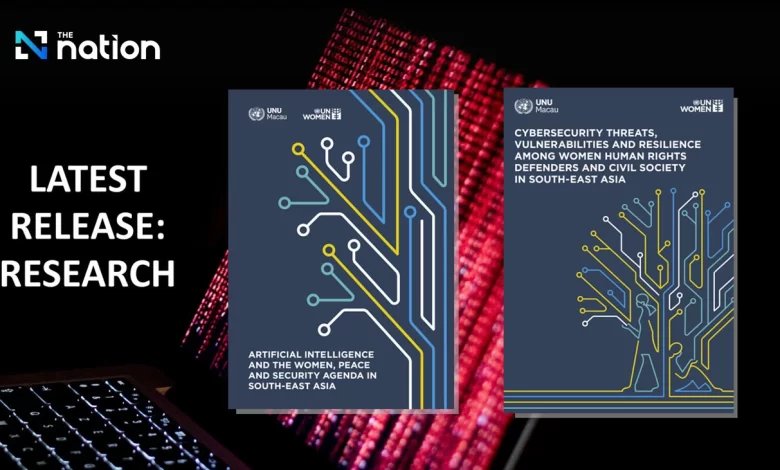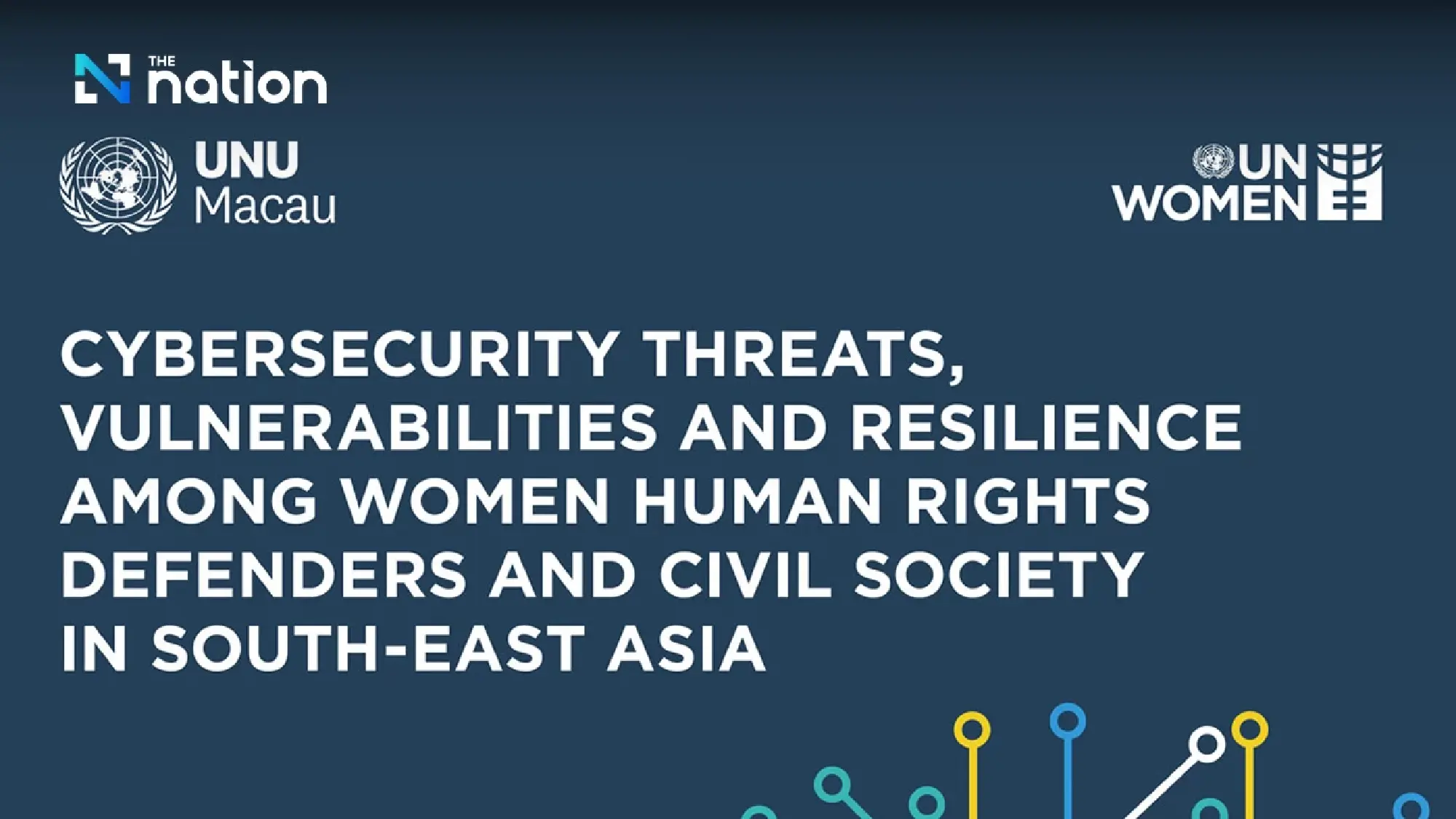UN research flags AI, cybersecurity threats facing women in SE Asia


The report “Artificial Intelligence and the Women, Peace and Security Agenda in Southeast Asia”, examines the opportunities and risks of AI from this unique perspective by focusing on four types of gender biases in AI – discrimination, stereotyping, exclusion, and insecurity – which need to be addressed before the region could fully benefit from new technological developments.
“With AI projected to add US$1 trillion to the gross domestic product of Southeast Asian countries by 2030, understanding the impact of these technologies on the WPS agenda is critical to supporting these countries to regulate the technologies and mitigate their risks,” says the report.
This research examines the relationship between AI and WPS according to three types of AI and its applications: AI for peace, neutral AI, and AI for conflict.
This report notes that across these categories, there were favourable and unfavourable effects of AI for gender-responsive peace and women’s agency in peace efforts.
While using AI for peaceful purposes could yield multiple benefits, such as improving inclusivity and the effectiveness of conflict prevention and tracking evidence of human rights breaches, it is used unequally between genders, and pervasive gender biases render women less likely to benefit from the application of these technologies.
The report also highlights risks related to the use of these technologies for military purposes.
This research identifies two dimensions to improving the dynamics of AI and the WPS agenda in the region: mitigating the risks of AI systems to advancing the WPS agenda, especially on social media, but also on other tools, such as chatbots and mobile applications; and fostering the development of AI tools built explicitly to support gender-responsive peace in line with WPS commitments.
The second report explores cybersecurity risks and vulnerabilities in this context to promote cyber-resilience and the human and digital rights of women in all their diversity.
“While there is increasing awareness of the risks women and girls face in cyberspace, there is little understanding of the impacts of gender on cybersecurity, or of the processes and practices used to protect digital systems and networks from cyber risks and their harms,” says the report.
This work differs from previous research into cybersecurity, as it focuses on human-centric as compared to techno-centric cybersecurity, and emphasises the human factor rather than technical skills as well as the centralisation of gender as critical to cybersecurity.
Cyber-threats are understood to be gendered in nature, whereby WCSOs and WHRDs are specifically targeted due to the focus of their work and are likely to be attacked with misogynistic and sexualised harassment, the report said.
The results highlight that digital technologies are central to the work of WCSOs and WHRDs, while simultaneously noting that WCSOs had higher threat perceptions and threat experiences compared to CSOs that do not work on gender and women’s rights.
According to the study, trends indicate that WCSOs have higher threat perceptions than CSOs with the largest differences being for online harassment (CSOs=3.46, WCSOs=3.80), trolling (CSOs=3.38, WCSOs=3.67) and doxxing (CSOs=3.46, WCSOs=3.73), within a range of 1-5, with five being the highest threat.
This carried disproportionate risks of disrupting their work, damaging their reputation, and even creating harm or injury, all of which contributed to marginalising women’s voices.
The report recommended increasing knowledge and awareness of gendered cybersecurity threats and vulnerabilities among civil society, governments, private-sector actors, and other decision-makers. Secondly, it advises fostering inclusive and collaborative approaches in cybersecurity policy development and engagement. Lastly, it suggests building knowledge and strengthening capacities of civil society, government, private-sector actors and other decision-makers to develop appropriate means of prevention and response to cyberattacks and their disproportionate impacts on WCSOs and WHRDs.
“Specific attention should be given to at-risk individuals and organisations, such as women’s groups operating in politically volatile and conflict- and crisis-affected contexts and situations where civic space is shrinking,” said the report.
UNU Macau and UN Women said the training materials based on the research findings and consultations with women’s rights advocates in the region would be rolled out, initially in Thailand and Vietnam, with e-learning modules and training handbooks to be publicly available in English, Thai and Vietnamese for interested stakeholders from mid-2024.



